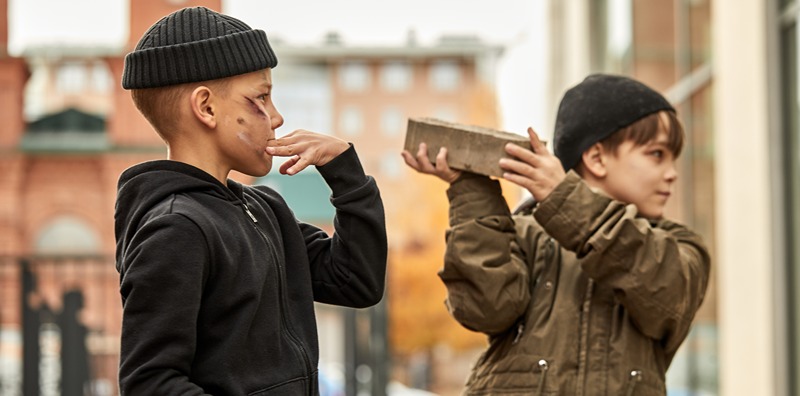
Investigative Article: Examining Juvenile Crime in Arizona and the Legal System’s Response to it
When we think about crime in our society, we often think of adults and the criminal justice system that is designed to deal with them. However, there is a significant amount of crime committed by juveniles, and the legal system’s response to it is quite different. Juvenile crime is a complex issue that involves not only legal consequences but also social, psychological, and economic ramifications that can impact the lives of young people and their families for years to come. In this investigative article, we will take a closer look at juvenile crime in Arizona and the legal system’s response to it.
Your Rights During a Juvenile Arrest
If you or someone you know is a juvenile who has been arrested, it is important to understand your rights. Juveniles have many of the same rights as adults, including the right to remain silent, the right to an attorney, and the right to be informed of the charges against them. However, there are some differences as well. For example, in Arizona, a juvenile can be held in custody for up to 24 hours before being charged. It is also important to note that Arizona does not allow juveniles to be housed with adult offenders.
What Are Juvenile Crimes and Their Punishments?
Juvenile crimes can include a wide range of offenses, from misdemeanors like shoplifting to more serious crimes like assault, robbery, and drug offenses. The punishments for juvenile crimes also range in severity, depending on the nature of the offense and the juvenile’s prior record. In Arizona, punishments can include anything from community service to probation to detention in a juvenile facility. For more serious offenses, a juvenile can be tried as an adult and face much harsher penalties.
How Does Juvenile Court Work in Arizona?
The juvenile court system in Arizona is designed to be more focused on rehabilitation than punishment. The goal is to help juveniles learn from their mistakes and become productive members of society. The court process is different from that of the adult criminal justice system, with separate rules and procedures. Juveniles are entitled to legal representation, and there is a high burden of proof required for a conviction. The court will also take into account the juvenile’s age, background, and prior record when determining a punishment.
When Can Juveniles be Tried as Adults?
In some cases, juveniles can be tried as adults and face more severe punishments. This can happen if the offense is particularly serious, if the juvenile is a repeat offender, or if the juvenile is close to the age of majority. Under Arizona law, juveniles as young as 14 can be tried as adults for certain offenses, such as murder, sexual assault, and armed robbery. This is a controversial issue, with some arguing that juveniles should be treated differently from adults in the criminal justice system.
What are Defenses for Juvenile Crimes?
Just like adults, juveniles have the right to defend themselves against criminal charges. In some cases, there may be defenses available, such as alibi, self-defense, or a lack of intent. It is essential to speak with an experienced juvenile defense attorney to discuss your options and develop a defense strategy.
The Role of Parents or Guardians in Juvenile Cases
Parents or guardians play an important role in the juvenile court process. They are usually involved in the decision-making process and can be held responsible for certain offenses committed by their children. It is essential for parents or guardians to work closely with their child’s attorney to ensure the best possible outcome.
How a Juvenile Defense Attorney Can Help
If you or someone you know is facing juvenile criminal charges, it is crucial to speak with an experienced juvenile defense attorney. Juvenile court is a unique system with its rules and procedures, and having an attorney who understands this system can make a significant difference in the outcome of the case. A good attorney will work closely with the juvenile and their family to develop a defense strategy that takes into account the juvenile’s age, background, and prior record.
Juvenile crime is a serious issue that requires a measured and thoughtful response from the legal system. By understanding the complexities of this issue and working together to find effective solutions, we can help ensure that young people who make mistakes have the opportunity to learn from them and move forward in a positive direction.
To learn more about juvenile crimes in Arizona and the legal system’s response to it, please visit Juvenile Crimes in Arizona: Punishments and Defenses.

Social Plugin